- Home
- entertainment
- news
- 15 of the most famous cliffhangers in TV history
15 of the most famous cliffhangers in TV history
Gabbi Shaw

- Cliffhangers are an important part of television history.
- Iconic sitcoms, prestige TV shows, and soap operas have used cliffhangers in their storytelling.
Writing for television is all about how to keep your audience tuning in.
One way to do that is to get viewers emotionally invested … only to put their beloved characters in mortal peril, emotional hell, or a combination of the two.
Here are some of the most iconic cliffhangers in TV history — not all of which ended up satisfying viewers in the long run. But they all got people talking and kept them watching week after week.
The final shot of "The Sopranos" has been debated for years.
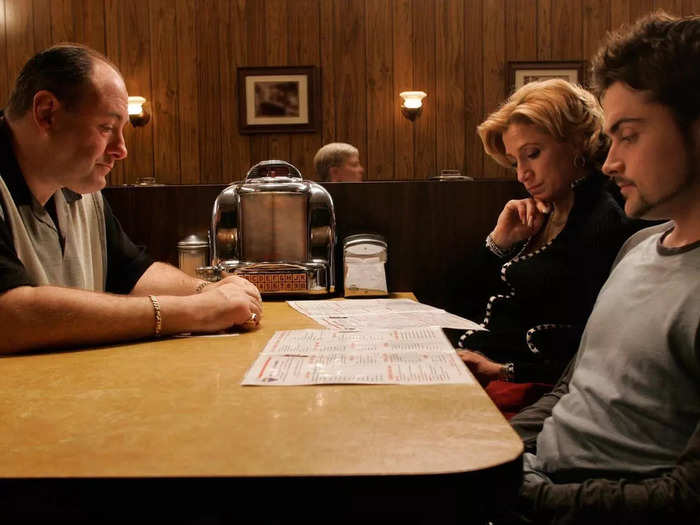
As the final season of "The Sopranos" progressed and the bodies kept piling up, it became clearer than ever that Tony, the head of a New Jersey crime family played by James Gandolfini, would not have a happy ending to his story in the 2007 finale, "Made in America."
But audiences didn't expect the show's final scene to be the Soprano family meeting at a diner while "Don't Stop Believin'" played on a jukebox.
And even more unexpected? That the camera would show the front door of the diner opening before cutting to black, ending the show.
People across the country thought HBO had crashed. But no, creator David Chase made it clear that this was the end, and he had no intention of telling us whether the person who arrived at the diner was there to whack Tony.
"Game of Thrones" had multiple cliffhangers throughout its eight-season run, but its most troubling was the stabbing of Jon Snow in season five.
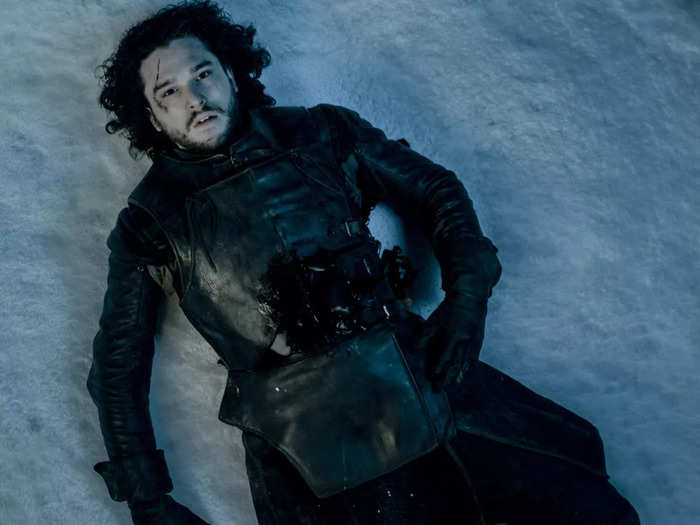
By the time season five of "Game of Thrones" was airing in 2015, audiences knew not to get attached to anyone.
But if "Thrones" had a main character by season five, it was Jon, played by Kit Harington.
So when season five concluded the episode "Mother's Mercy," in which his so-called "brothers" conspired to kill him via group stabbing, fans were shocked — well, the ones who hadn't read the books at least.
After the season ended, Harington swore he wasn't returning to the world of Westeros, which made viewers wonder even more: What would happen next?
You'd have to tune in to season six to find out.
The sixth season of "The Walking Dead" used an inventive camera trick to hide who exactly Negan was beating to death with his beloved baseball bat, Lucille.
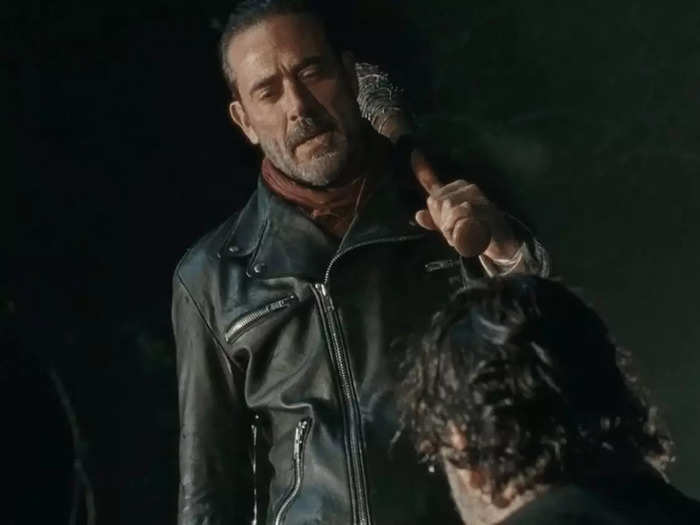
"The Walking Dead" waited until the finale of season six in 2016 to properly introduce viewers to Negan (played by Jeffrey Dean Morgan) after teasing him for the entire season.
And what an introduction it was. After terrorizing our main characters off-screen, Negan realized he couldn't decide who to kill and used a game of Eenie Meenie to pick his victim in the episode "Last Day on Earth."
But we didn't get to see his selection — instead, the camera switched to the point of view of the victim, who was then viciously bludgeoned by Negan.
Viewers didn't find out until season seven who was on the receiving end of Lucille's wrath.
You might not think of "Star Trek: The Next Generation" as a show capable of cliffhangers, but when Captain Jean-Luc Picard was turned into a Borg, viewers worldwide were desperate for the next season.
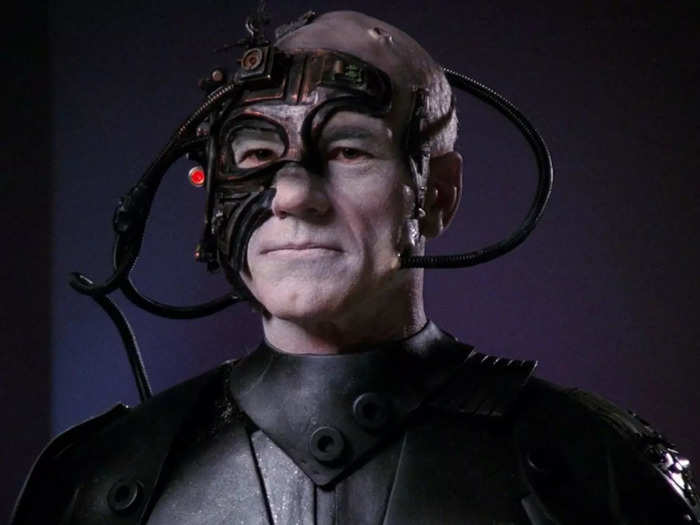
By design, "Star Trek" is a fairly episodic show. But when the season three finale aired in June 1990, it became clear that even "Star Trek" knows the power of a good cliffhanger.
The third season ended with the episode "The Best of Both Worlds," in which Jean-Luc Picard (Patrick Stewart), the brave captain of the Enterprise, is taken captive by an evil alien species called the Borg, who have the power to eventually take over the galaxy.
So, Picard's friend and first officer, William Riker (Jonathan Frakes), is left with a choice: Does he mount a rescue mission or take the opportunity to wipe out the Borg, Picard included?
The episode concludes with Riker firing on the Borg's ship before hitting us with a "To be continued…" leaving Picard's fate up in the air until season four.
When the door of the hatch was blown off its hinges in the season one finale of "Lost," it became clear this wasn't just a show about a group of plane crash survivors.
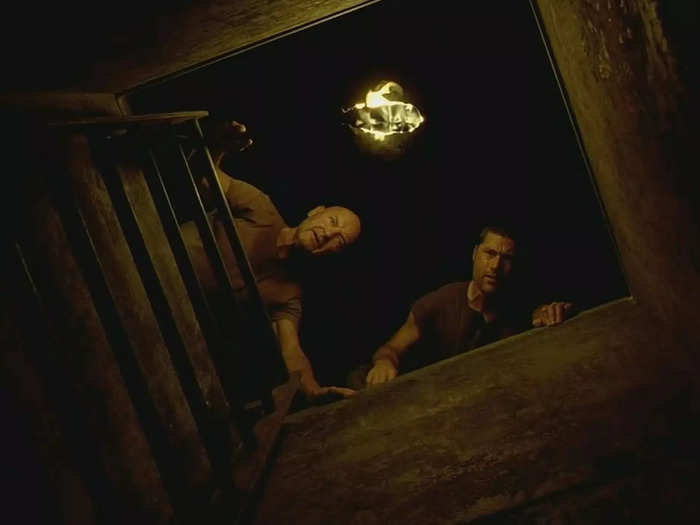
Throughout the first season of "Lost" in 2004 and 2005, fans kept getting hints that this island was not your typical deserted island.
But in the episode "Exodus," when Jack (Matthew Fox) and Locke (Terry O'Quinn) finally blow the door off a mysterious hatch they found on the floor of the jungle and realize that it went deep underground, we get confirmation: Something is wrong on this island.
Meanwhile, Walt (Malcolm David Kelley), a young boy on the plane, is snatched from a rescue raft by a mysterious group of people known only as the Others.
In retrospect, it's wild that we had to wait months to find out who took Walt and what was at the bottom of the hatch.
Two seasons later, the rug was pulled out from under "Lost" fans again. Two words: Flash-forwards.
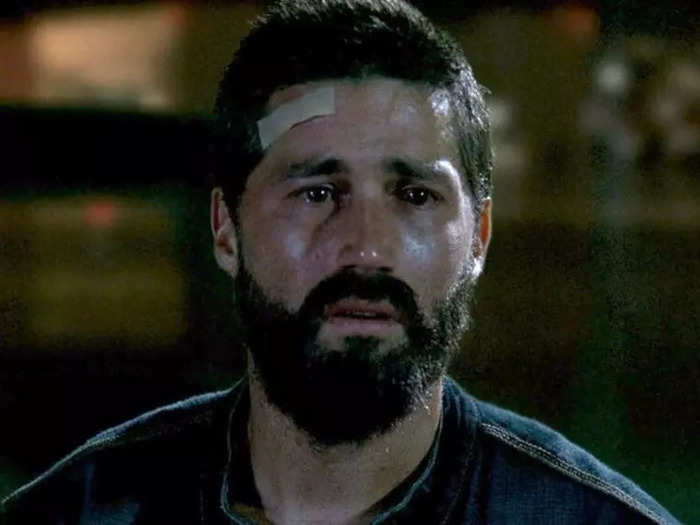
From the first episode of "Lost," it was clear each episode would split the action between the present-day happenings on the island and flashbacks, usually focused on one survivor.
But the season three finale, "Through the Looking Glass," which aired in 2007, seemed different. We watched as Jack (Fox) became heavily depressed, even suicidal, and hooked on painkillers — which was a previously unknown part of Jack's history.
But the last scene of the finale showed us the truth — this wasn't a flashback, but a flash-forward, letting us know that at least Jack and Kate (Evangeline Lilly) would be rescued from the island at some point in the future and that Jack would tearfully tell Kate that they have to go back to the island, thus changing the course of "Lost" forever.
In 1980, it was impossible to watch TV without CBS asking, "Who shot JR?"
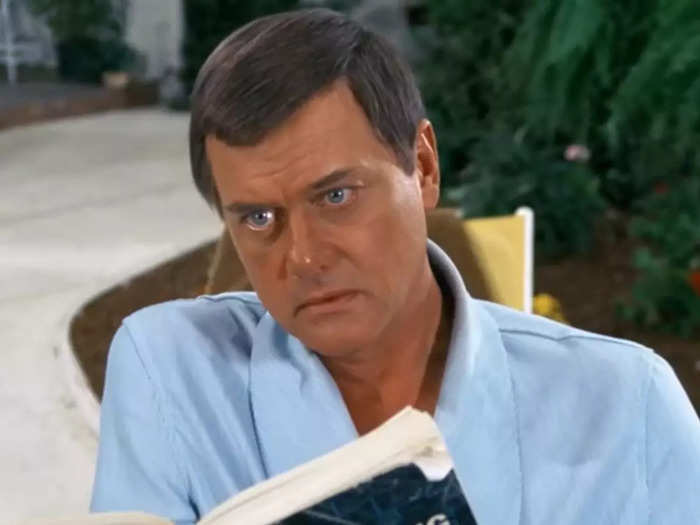
By the time "Dallas" had entered its third season, audiences were captivated by the wheeling and dealing of the Ewing oil/cattle dynasty.
And no character was more admired (or reviled) than JR Ewing (Larry Hagman), a scheming oil tycoon who stopped at nothing to get what he wanted.
When the season three finale, "A House Divided," concluded with JR getting shot by a mystery gunman, TV audiences became consumed by the question, "Who shot JR?"
It could've been anyone, as everyone on the show had a reason to kill JR. In fact, everyone on the show was filmed shooting JR to keep it a secret from audiences and the crew alike.
It took four episodes of season four before the shooter's identity was revealed.
"The Simpsons" poked fun at "Dallas" with its own two-part episode, "Who Shot Mr. Burns?"
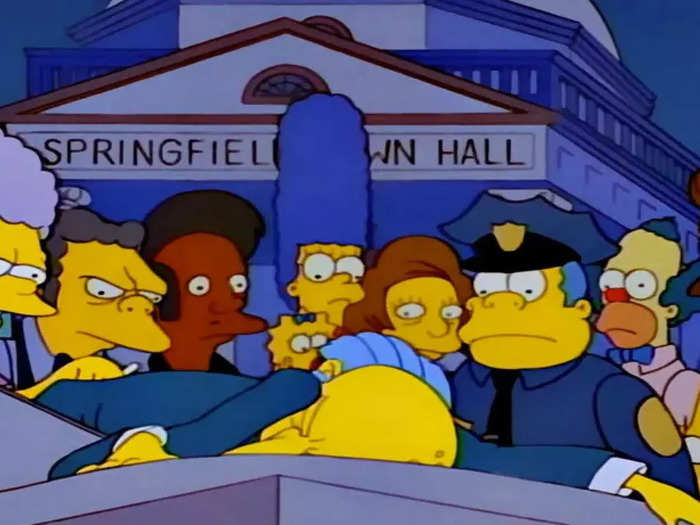
Fifteen years after the "Dallas" episode, "The Simpsons" concluded its sixth season in 1995 by showing Mr. Burns (Harry Shearer), the greedy owner of the Springfield Nuclear Power Plant, getting shot.
The first part of the episode contains many clues (and some red herrings) as to who shot Burns, but like Ewing before him, everyone had a reason to want him dead.
We won't spoil it here, but the season seven premiere clarifies who shot Burns, and the reveal was certainly worth the wait.
Another cliffhanger involving a shooting is the first season finale of "The West Wing," which ends with a Secret Service agent asking who's been hit.
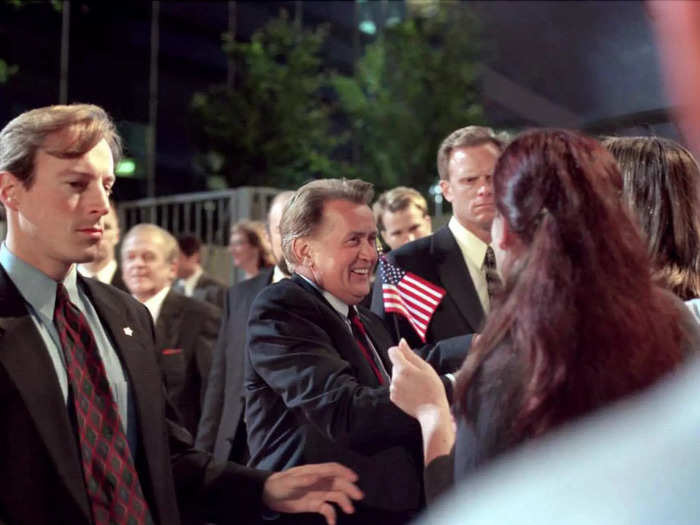
"The West Wing" became a phenomenon throughout its first season in 1999 and 2000, but it took the cliffhanger in the season one finale ("What Kind of Day Has It Been") to put it on the map.
Our entire beloved cast of characters, the senior staff of President Jed Bartlet (Martin Sheen), is at an event where the president is speaking when a gunman opens fire.
In the chaos, we see each member hit the ground. But before we can assess who's safe, the camera pans out, and we only hear a frantic Secret Service agent over the radio asking who has been hit.
We didn't find out the answer until the season two premiere months later.
The final cliffhanger involving a shooting on this list comes from the first season finale of "Twin Peaks" in 1990.
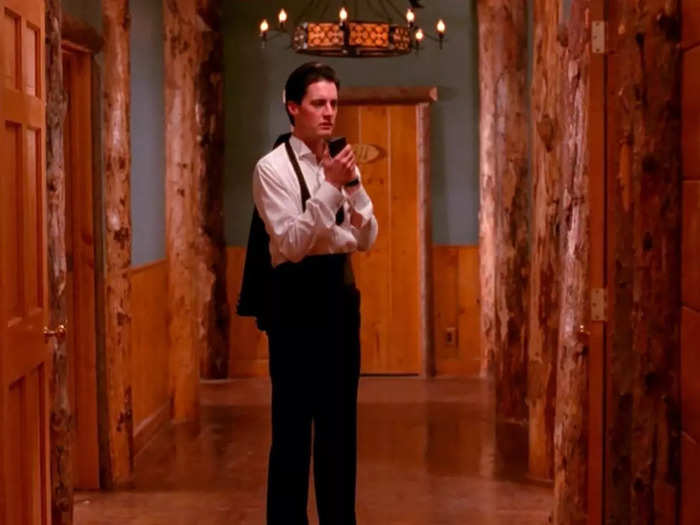
It's impossible to predict what will happen on "Twin Peaks," which originally began as a murder-mystery show and ended as something quite different.
But in the first season, creator David Lynch mainly adhered to the mystery aspect of the show, right down to the last moments of the finale, when FBI Agent Dale Cooper (Kyle MacLachlan), our main character, is shot on his doorstep by an unknown gunman.
There are theories to this day about the identity of Cooper's would-be killer, which makes it an all-time cliffhanger.
"Grey’s Anatomy" fans will never forget where they were when they discovered Derek Shepherd had a wife.
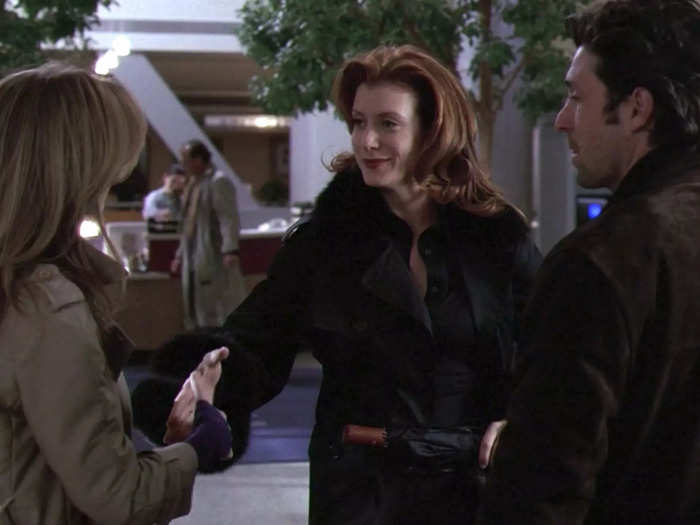
Season one of "Grey's Anatomy," which aired in 2005, had a lot of characters to juggle, but the most compelling one at the time was watching Meredith Grey (Ellen Pompeo), a surgical intern, fall in love with her boss/neurosurgeon Derek Shepherd (Patrick Dempsey).
It seemed they'd finally figured out their issues in the finale of season one, "Who's Zoomin' Who?," only for a statuesque redhead (Kate Walsh) to greet Derek and say to Meredith, "You must be the woman who's been screwing my husband."
Around the country, jaws dropped, and answers would only come months later in season two.
And do you remember where you were when Ross said "Rachel" at the altar on "Friends"?
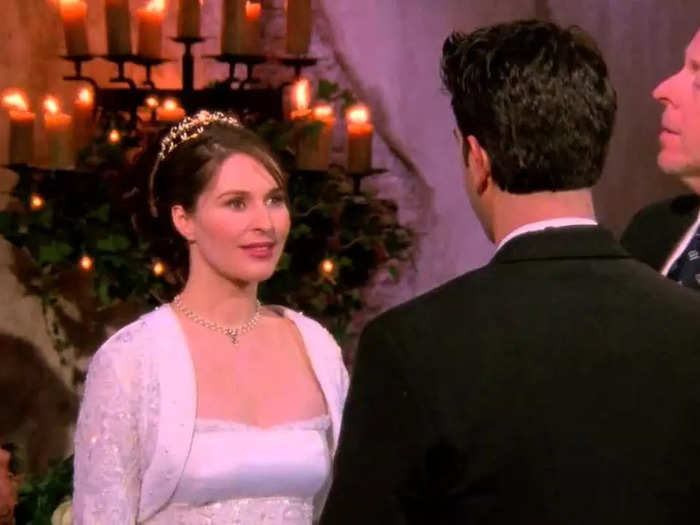
Ross (David Schwimmer) and Rachel (Jennifer Aniston) werre one of the greatest will-they-won't-they couples of our time.
Thus, it was a huge surprise when Ross decided to marry Emily (Helen Baxendale), his British girlfriend of only a few months, in the 1998 finale of season four, "The One With Ross's Wedding."
But the pull of Ross and Rachel's unfinished business was too strong for Ross, and viewers (and Rachel) gasped as Ross said, "I, Ross, take thee Rachel" at the altar.
The officiant asks Emily if he should continue, and before we find out her answer, the episode ends, leaving Ross' marital status up in the air until season five premiered months later, aptly titled, "The One After Ross Says Rachel."
Speaking of will-they-won’t-they duos, it seemed the central couple of "Alias" was going to figure it out before a two-year surprise time-jump ruined everything.
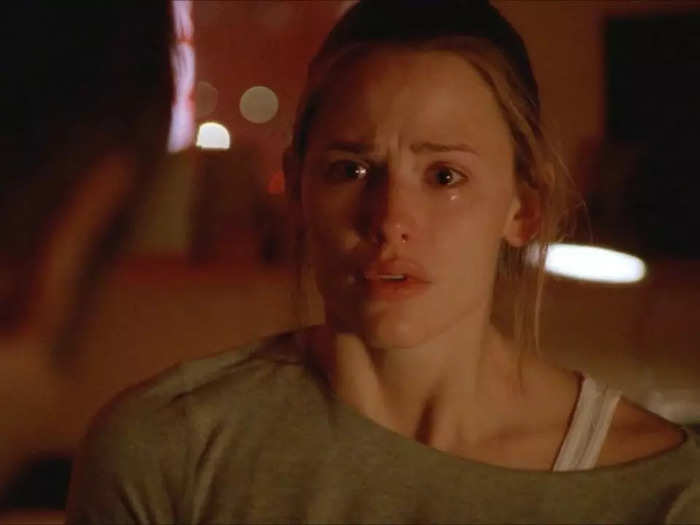
"Alias" starred Jennifer Garner as super-spy Sydney Bristow and Michael Vartan as Vaughn, her handler.
Their explosive chemistry was a huge part of the show's success, but it became increasingly ridiculous that these people wouldn't fall in love by season two.
And so they did — until the season two finale, "The Telling," in 2003. After surviving a particularly nasty fight, Sydney wakes up in Hong Kong, asking for Vaughn.
He arrives, only to tell Sydney that she's been missing for two years, and in that time, he's married someone else. A true gut punch, even 21 years later.
How could there be a "Buffy the Vampire Slayer" without Buffy? Fans were forced to ask this question after the fifth season finale.
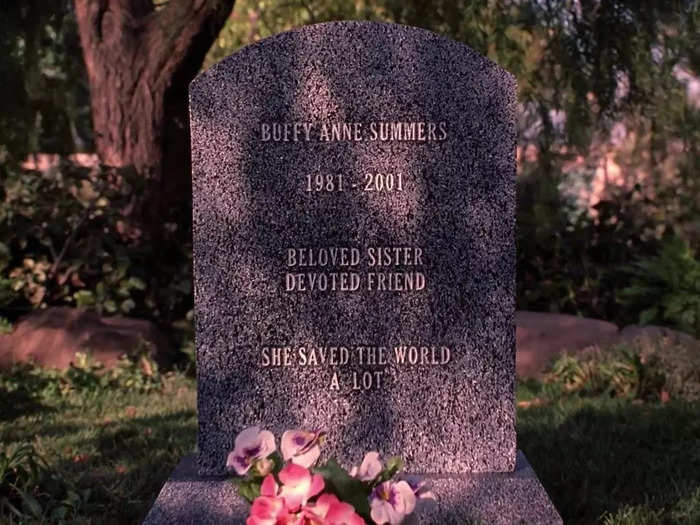
The titular vampire slayer, Buffy (Sarah Michelle Gellar), gave more of herself than any teenager should be expected to throughout the first five seasons of "Buffy."
But in the season five finale in 2001, titled "The Gift," she sacrificed herself to save her sister Dawn (Michelle Trachtenberg), her friends, and the town of Sunnydale.
The episode's final shot is a close-up of Buffy's gravestone, which declares, "She saved the world. A lot."
How could there be a season six of "Buffy" without Buffy? Fans were asking this question until the show came back for season six when it became clear that Buffy's death would have long-term consequences for the show.
The sixth season of "ER" in 2000 employed a rare midseason cliffhanger when a patient attacked John Carter and Lucy Knight.
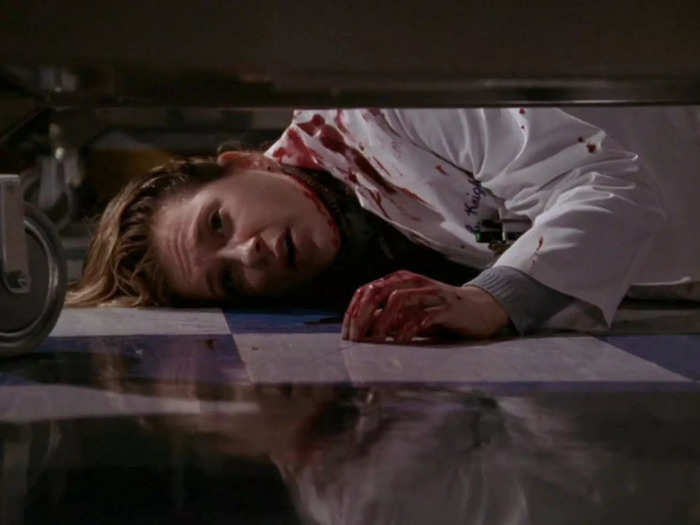
Throughout the first episode ("Be Still My Heart"), Lucy Knight (Kellie Martin) is trying to tell her boss, Dr. John Carter (Noah Wyle), that she's concerned about the mental state of her patient.
John, busy with other things, ignores her, with disastrous consequences. The patient stabs both of them, resulting in the episode ending in a haunting image of John and Lucy staring at each other on the floor, next to a hospital bed.
And that's nothing compared to what happened the following week when their colleagues found them in this state in the episode "All in the Family."
Popular Right Now
Popular Keywords
Advertisement